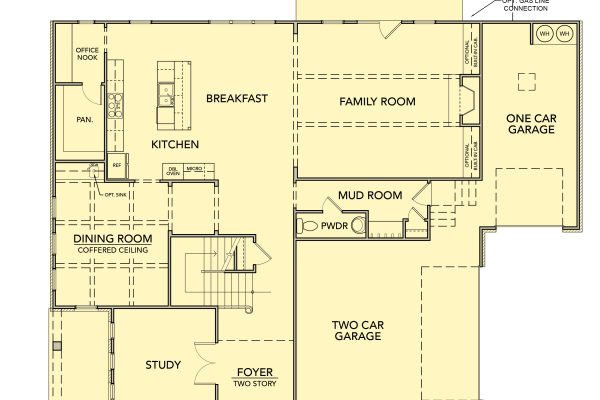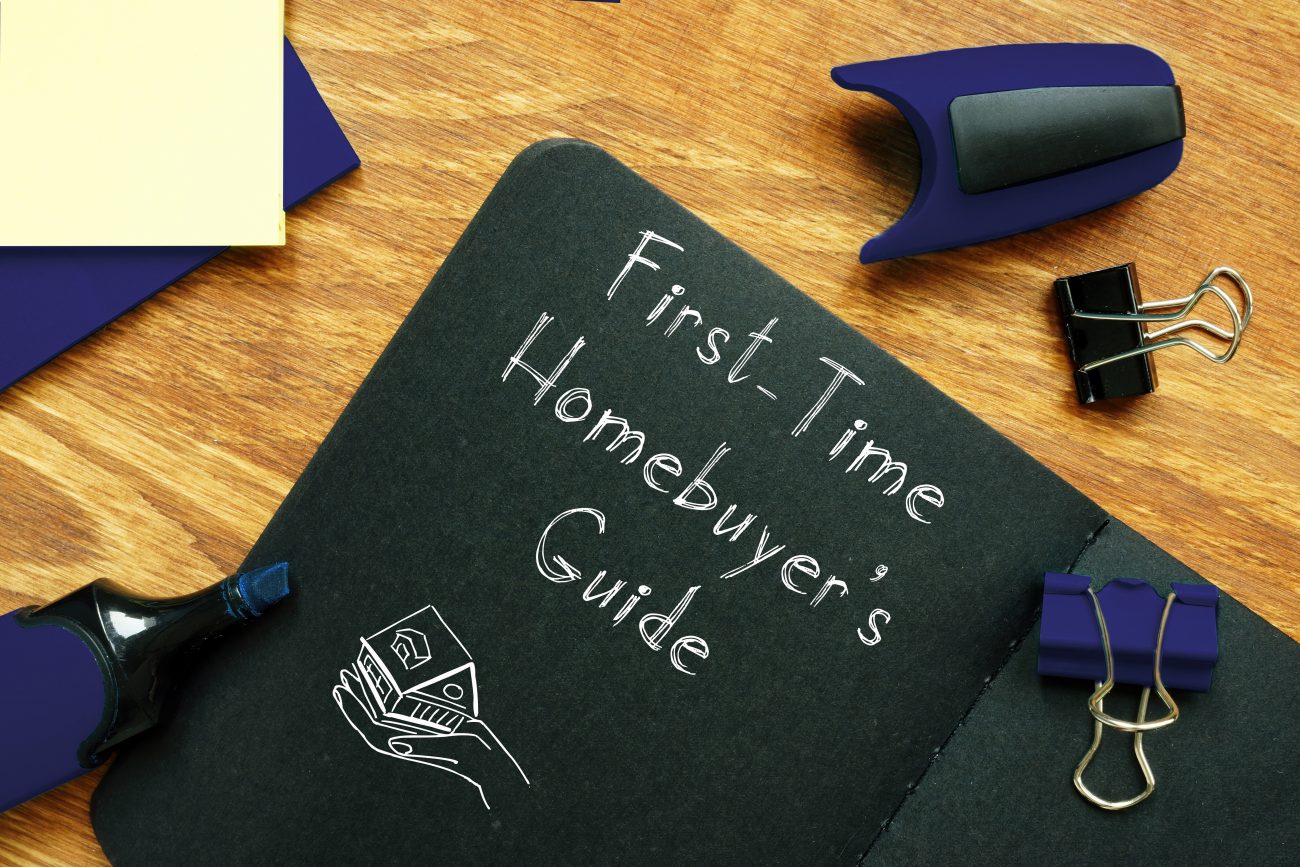Looking for our most recent news?
It looks like you've found some great information, but it might be a little outdated. For our most recent news on new home communities, financing options, and upcoming events visit our News page or browse our current new home communities.
This is the year when all your planning, saving, and searching will finally pay off! You’ve signed a contract with a great real estate agent who understands your priorities, found your dream home in an amazing neighborhood, and secured the downpayment, but there are still a few hurdles looming around every corner of the home buying process. The list of questions you compiled to ask the internet keeps growing: What is earnest money? Are appraisals as important as people say they are? Which home loan should I apply for?
Kerley Family Homes is here to help answer all of your first-time homebuyer questions wherever you are in the process. Buying your first home is an emotional experience and a financial one. It can be overwhelming, stressful, and even frightening. At the same time, excitement and the hope of a new beginning are also felt. We know and understand what this process can be like and we’re always here to help educate our buyers and empower them with the knowledge they need to be successful.

Most-Asked First-Time Homebuyer Questions
-
Am I ready to buy a home?
Only you are able to answer this question truthfully. Remember to think about some of the responsibilities you’ll have after the home is purchased like repairs, property taxes, and furniture. When something needs to be fixed in your house, whether it’s a paint chip or a new roof, you’ll have to handle 100% of those costs. Before you start the homebuying process, make sure you create a comparison budget that shows all of your expenses before and after the purchase so you’re informed and prepared for the change!
-
How long do I plan to live in this home?
Real estate professionals say that first-time homebuyers should plan to live in their home for at least 5 years to recoup costs (from surveys, inspections, points, etc.) and make a profit from selling. If you’re thinking about moving to another state or country consider if now is the right time to buy. Make sure to also consider becoming a landlord rather than selling your home so you break even or make extra money each month instead. Be advised that some grants and mortgages (especially for first-time homebuyers) may stipulate that you live in the home as a primary residence, some for a minimum period of 5 years.
-
Is my credit score good enough to buy a home?
In today’s real estate market, credit constitutes a large majority of your financial report card. With a quick download of an app like Credit Karma or accessing websites like Experian or Equifax, you can see your current credit score in just a few minutes. First-time homebuyers are advised to have a credit score of 620 or higher to receive a conventional loan. If your score is below a certain point then lenders may offer you a higher interest rate (which results in higher monthly payments), require a higher downpayment, or reject your loan application. If you still have a ways to go before your score reaches that amount, there are mortgage programs that offer FHA loans designed to help people with lower credit scores.
-
What are the minimum financial requirements to buy a home? (Can you buy a house with no downpayment?)
Many people may tell you all you need to buy a home is the suggested 20% downpayment, but that’s just a portion of some of the costs you may acquire. Appraisal fees, earnest money, home inspections, and closing costs are also a part of the deal. These monetary requirements range in value depending on the home you buy and the community in which you live. These payments ensure your realtor is paid, your home is in good condition, and the value of your home is relative to the amount you are paying for it, among other things.
Receiving a government-backed loan is one way to get a zero-down payment mortgage. This ensures that if you stop paying on your mortgage the government will step in and foot the bill which is less risky for the lender. Two types of government-sponsored loans – VA loans and USDA loans – allow you to buy a home without a down payment. Each of the two loans has a specific set of criteria you must meet to qualify such as serving in the U.S. military for a certain number of years, being a U.S. citizen, or moving to a rural/underdeveloped area of the country.
-
How do I find a real estate agent?
Lucky for first-time homebuyers, every Kerley Family Homes community has a licensed real estate agent. If you’re looking to buy a new home, simply walk into any KFH model home, and you’re immediately in good hands with a qualified, licensed Georgia real estate agent! There are also many practicing real estate agents in the cities Kerley Family Homes builds in. In the state of Georgia, many realtors work in the metro-Atlanta area. Finding an agency and an agent that’s right for you and your family is a personal process. Be sure to read the contract thoroughly before signing and ask questions about any associated fees, appointments, and other important information.
-
Should I get a 15-year or 30-year mortgage?
Homebuyers often prefer 30-year fixed-rate mortgages because they offer the lowest stable monthly payment for the life of the loan. However, a 15-year mortgage will allow you to pay your loan off faster. Switching from a 30-year to a 15-year term can save you thousands of dollars in interest, if you can afford the higher monthly payment. You can also pay a 30-year mortgage at the 15-year mortgage cadence and payment – and the extra amount paid will get directed to reducing principal (not interest). This allows you to get ahead if you’re in a period of making extra money, but fall back to the contracted 30-year payment when lean times present themselves and you’re no longer able to make an accelerated payment. Make sure to reflect on what your financial goals are and speak to your real estate agent to decide if paying off a mortgage for shorter or longer amount of years is the right decision. KFH real estate agents can point you in the right direction for mortgage lenders that understand loans for new construction homes. Don’t forget you can always refinance your loan at a later time if you want to change the loan requirements.
-
What’s the difference between a mortgage pre-qualification and a pre-approval?
Learning the difference between these terms will guide your home search and help you focus on homes you can afford. Prequalification means a lender receives basic financial information from you to estimate the cost of a house you can afford. Since this process relies on self-reported information, this leaves you with an estimated range rather than a firm amount. A mortgage pre-approval is a more official process and requires documentation including pay stubs, tax returns, and your Social Security card. Receiving a pre-approval adds more credibility to your offer so the seller is sure you will receive the loan amount to buy the house.
-
What can I expect at a real estate closing?
For homebuyers, closing is the day they officially take over ownership of the property and receive the keys. You can expect to meet with your realtor and the homebuilders realty team to ensure all documents have been signed, final questions are answered, and a final walk-through of the property is completed. Make sure you’re also payment ready and able to write a check for closing costs and any other remaining fees. If you’re transferring funds from another account, remember to do this before the day of so it clears.
-
What should I do after I move in?
You’ve done it! The homebuying process is complete and you’re ready to start moving in your belongings and decorating your new space. To really turn your house into the home of your dreams consider doing these important tasks: deep clean the home, change house locks, update your address, transfer utilities (water, gas, electricity, trash collection), set up internet connection, and update all important documents. If you really want to feel like a part of your new community, we suggest meeting your neighbors. Even if it’s just a quick friendly wave and a short conversation, meeting the people around you who are dedicated to keeping the neighborhood safe is important for a first-time homebuyer. This also helps you to associate positivity with your new surroundings.

Kerley Family Homes is dedicated to educating our buyers about the real estate market, our vibrant communities, and the first-time home buyer process. Contact an agent today for more information about our available homes and current promotions. We wish you a happy homebuying experience!











